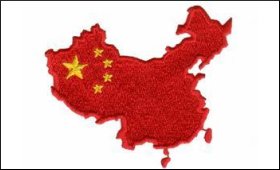|
|
|

|
Foreign investors face curbs and lawless regime in China
|
|

|
|
| Top Stories |
 |
|
|
|
IANS | 03 Jul, 2020
China may be crying foul as some of its companies are being shut out of
bids in other countries, but it has been for long following
discriminatory policies against foreign investors.
In China,
long-term visas are really difficult to get. Investors need to form a
company and make an investment of either $500,000 in China's
underdeveloped west, over $1,000,000 in a central province, or
$2,000,000 in any other region to get a Chinese investment visa.
Foreigners
(and locals as well) can't own freehold property in China. Every plot
of land belongs purely to the state and can only be obtained on a
70-year leasehold at maximum. This makes business very difficult for
real estate investors.
Stock investors also face severe
restrictions. Foreigners can only buy "A-Shares" via Hong Kong, and one
needs to open a Hong Kong brokerage account to do so.
In
addition, China relies on the Special Administrative Measures for
Foreign Investment Access (known as the "nationwide negative list") to
categorise market access restrictions for foreign investors in defined
economic sectors.
Foreign participation in many industries
important to US investors remain restricted, including financial
services, culture, media, telecommunications, vehicles and
transportation equipment.
This makes things more difficult due to
lack of transparency and lack of rule of law in China's regulatory and
legal systems, leaving foreign investors vulnerable to discriminatory
practices such as selective enforcement of regulations and interference
by the Chinese Communist Party (CCP) in judicial proceedings.
Some
US businesses have reported that local officials and regulators
sometimes only accept investments with "voluntary" performance
requirements or technology transfer that helps develop certain domestic
industries and support the local job market.
Provincial and
municipal governments will sometimes restrict access to local markets,
government procurement, and public works projects even for foreign firms
that have already invested in the province or municipality.
In
addition, Chinese regulators have reportedly pressured foreign firms in
some sectors to disclose IP content or provide IP licences to Chinese
firms, often at below market rates. These practices run contrary to WTO
principles.
China has also restricted the ability of both
domestic and foreign operators of "critical information infrastructure"
to transfer personal data and important information outside China, while
also requiring those same operators to only store data physically in
China.
Foreign firms also fear that calls for use of "secure
& controllable" and "secure & trustworthy" technologies will
curtail sales opportunities for foreign firms or that foreign companies
may be pressured to disclose the source code and other proprietary
information, putting the IP at risk.
China's Property Law
stipulates that residential property rights will renew automatically,
while commercial and industrial grants shall be renewed if the renewal
does not conflict with other public interest claims.
A number of
foreign investors have reported that their land use rights were revoked
and given to developers to build neighborhoods designated for building
projects by government officials. Investors often complain that
compensation in these cases has been nominal.
China also imposes
requirements that US firms develop their IP in China or transfer their
IP to Chinese entities as a condition to accessing the Chinese market,
or to obtain tax and other preferential benefits available to domestic
companies. One in five corporations said that China has stolen their IP
within the last one year.
According to a report, "The Digital
Hand", published by the European Union Chamber of Commerce in China,
implementation of China's Social Credit System (SCS) has the potential
for discriminatory use towards international companies.
Some of
the rating requirements apply equally to all market participants but are
more difficult for international companies to fulfill. This appears to
be the case for the State Administration for Market Regulations (SAMR)
blacklisting mechanism for "heavily distrusted entities" which makes the
SCS usable in trade conflicts.
Chinese companies have the
advantage in navigating the intricacies of the system, potentially
enhanced by better information flows from the government authorities.
|
|
|
| |
|
|
|
|
|
|
|
|
|
|
|
|
|
|
| |
| Customs Exchange Rates |
| Currency |
Import |
Export |
US Dollar
|
₹91.2
|
₹89.5 |
UK Pound
|
₹123.35
|
₹119.35 |
Euro
|
₹107
|
₹103.35 |
| Japanese
Yen |
₹57.9 |
₹56.1 |
| As on 22 Jan, 2026 |
|
|
| Daily Poll |
 |
 |
| What is your primary "Make or Break" expectation from the Finance Minister this year? |
|
|
|
|
|
| Commented Stories |
 |
|
|
|
|
|
| |
|